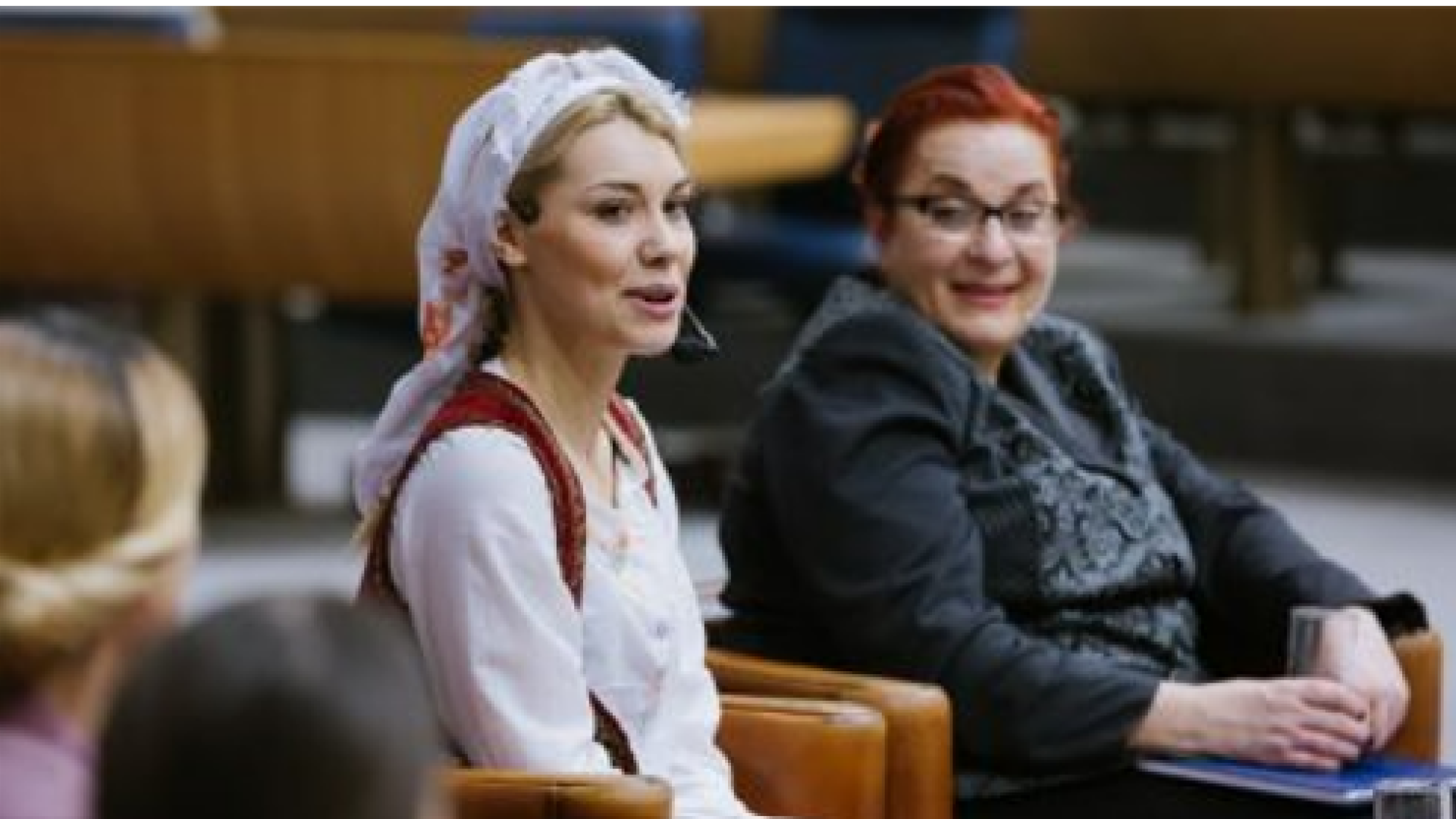Getting more Bosnian women into politics

Despite the obligatory 40% gender quotas for election lists, women’s actual representation remains low in all levels of government. This is especially prevalent in local government: at the last local elections in 2016, only six women were elected as local mayors, out of 143 municipalities.
To counteract this negative trend, on 7 March, Westminster Foundation for Democracy (WFD) in Bosnia and Herzegovina organised a conference called “Time machine” in the Bosnian Parliament to highlight the discrepancy between the lack of representation of women in politics and the number of successful women in other fields.
The conference, which was organised in cooperation with the Agency for Gender Equality of Bosnia and Herzegovina, celebrated the achievements of iconic Bosnian women through reenacting chapters of their lives. The women included:
- Staka Skenderova, the first woman to open a school for girls in Bosnia and Herzegovina;
- Sevala Zildzic-Iblizovic, the first Muslim woman doctor in the time when there was limited or no education accessible for young women;
- Vera Snajder, the first woman mathematician in BiH and the first woman to become a dean in former Yugoslavia;
- Vahida Maglajlic, the first Muslim woman to become a national hero in World War II; and
- Rifka Levi who was the first professional ballerina in Bosnia and Herzegovina.
Talented Bosnian women from all walks of life also shared their experiences in a panel discussion about the challenges women face in the fight for gender equality. We have shared some of their testimonies below.
Razija Mujanovic, three-time winner of the best female basketball player in Europe, was a member of the panel, who said:
“When I entered the FIBA (basketball) Hall of Fame, it received far less coverage in the media, which wouldn’t be the case if that was a man. The successes of women are not acknowledged and sometimes it is degrading. I proved my fight for equality on the basketball field, with my winnings and medals. When I finished my sport career, I discovered I had breast cancer. It was then when I realised that women lead numerous battles in their lives and that there is not a single battle that women cannot win. I am calling for all women to think about their health and to have regular medical examinations which can save their lives.”
Marijela Margeta-Hasimbegovic, the first woman director of Sarajevo's National Theatre, spoke of the challenges that the woman face in their everyday life due to societal norms:
“After seeing this play about women who were living 100 years ago and who have become forgotten, I hope that we will change our approach to them and that in 100 years we will not have a panel with a similar topic. The “law of the street” limits women and their role in the society far more than any formal legislative framework. When I was the director of the National Theatre Sarajevo, some of my environment were very harsh of my intent to bring women together during regular events. The environment only saw the facade, the dresses and the make-up of my efforts, they did not see the essence found in empowering and connecting women.”
Maja Hadziselimovic is one of the leading innovators in the field of robotics. Her work is praised throughout the world, but she says she still faces prejudice due to the fact of being a woman in the world of science and technology. Encouraging women to keep on challenging the existing prejudices Maja shared her experience with he audience:
“My love for robotics appeared when I was just a little girl. Eventually, in my life and in the field of robotics, I have noticed that I have always been the only women at meetings. Sometimes I have even experienced that when presenting an application I made at fairs, someone would approach me to ask me whether they can speak to someone who really understand the app. It is our role as a society to encourage girls and to show them that there is nothing a woman can’t do.”